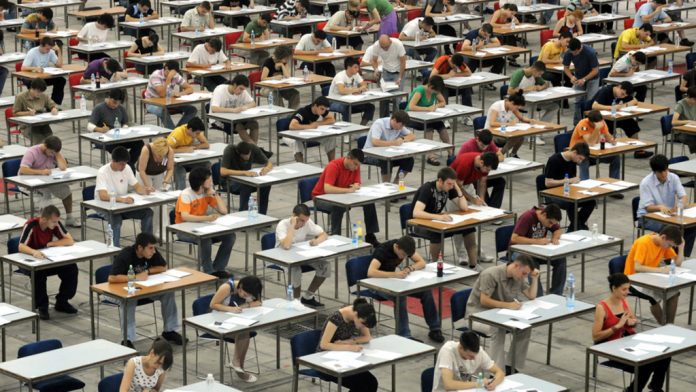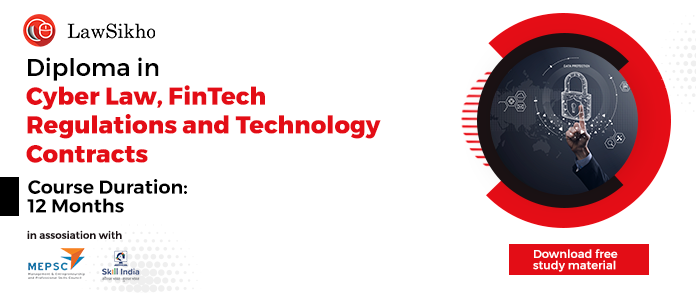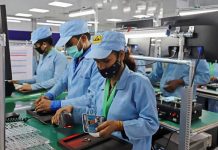This article is written by Astitva Kumar, a student from Guru Gobind Singh Indraprastha University. This article discusses how the Covid-19 pandemic has caused us to take a fresh look at our examination system in respect to the above case laws, as well as the constantly changing student-teacher interactions.
Table of Contents
Introduction
The greatest public health concern that the world is currently facing is causing the greatest and fastest restructuring or reorientation of the Indian educational order. The globe is currently in peril as a result of the Coronavirus outbreak. Almost all nations have been affected by the virus’s direct and indirect consequences, and the lives of millions of individuals have been altered, in many cases irreversibly.
The COVID-19 lockout and subsequent transition to virtual learning have prompted us to examine the student-teacher dynamic and the examination system for flaws. Teachers could make rounds in the classroom and examine each student’s performance and understanding individually in the old days. In contrast, when teaching online, professors are required to turn off their students’ microphones to avoid disruption, effectively shutting down student doubts, criticism, and involvement. Pupils can no longer express their concerns in a one-sided discourse, and teachers can no longer assess their students’ comprehension levels.
The COVID-19 pandemic has wreaked havoc on school systems all around the world, affecting about 90 percent of the world’s student population. Over 1.5 million schools in India were shattered owing to the pandemic, affecting 286 million children from pre-primary to secondary education. This is in addition to the 6 million girls and boys who were already absent from school before COVID-19. This disruption in education has serious economic consequences as well.
The dilemma over examination during the time of the pandemic
During the COVID-19 epidemic, the word “social distancing” – both imagined and actual – appeared to be the critical concern of existence, to the point where every collective space must now be organized in terms of individualized safety, which will reconstruct social interactions in the future.
Exams in schools are no longer possible as they once were. Written exams with a massive syllabus are suddenly made ineffective. The entire system has been put under the microscope, and understanding of the curriculum has taken precedence above grades. Since the outbreak of the pandemic, education has shifted online, and to a significant extent, in both schools and colleges around the world. Online instruction and testing have now become the new normal. In this state of siege, information technology has emerged as a hero.
Examination, which has taken center stage in disputes over the Union government’s intention to organize tests in the sphere of national “technical” education – medical, engineering, computer sciences, business administration, biotechnological sciences, and so on – despite the epidemic.
The debate has refocused on the question of life safety (of students). Against the backdrop of the question of life, the need to maintain the academic calendar as the focal point of educational activities is raised.
Many schools, colleges, and universities have continued to focus on ways to make examinations failsafe by using proctoring and cameras, many schools have begun to rely on data to provide insight. Many institutions who hopped on the live class bandwagon simply altered the mode of delivery from in-person instruction to using tools like Zoom and Teams.
An analysis of the case of B Ramkumar Adityan v Principal Secretary and Ors. (2020), Prof Dr. E Balaguruswamy v. The Principal Secretary and Ors. (2020)
Former Anna University Vice Chancellor, E Balagurusamy has again expressed his disagreement with the Tamil Nadu government’s position, this time on the state’s decision to cancel all students’ arrear exams except final year students. According to Balagurusamy, this would lower university academic standards.
He went on to say that universities do not conduct tests and award grades based on the ‘whims and fancies’ of students and politicians. Universities are highly independent organizations, with syndicates, senates, and academic councils wielding complete power and authority over the conduct of tests and the dissemination of results. Governments have no jurisdiction to interfere in university academic concerns or cancel exams unilaterally.
It is high time that Vice Chancellors wake up and realize their autonomous status and resist any such unethical moves in the interest of the quality of education and image of the universities. Exempting students from writing semester exams is one thing and canceling failed students’ arrear exams and making them pass is entirely a different thing. People should not confuse these two.
In response to the matter, he stated, “I understand that many students have more than ten arrears and achieved less than 20 percent in most disciplines.” How can a university proclaim these pupils to have passed simply because they paid the exam fees?”
“It’s ludicrous,” he claims. Such a move will not only degrade the university’s academic standards but will also harm its legitimacy. It seems unfathomable that a world-class university like Anna University would make such a lopsided conclusion.
The contention of parties to the case
The State’s Advocate General Vijay Narayan argued that the decision to cancel the arrear tests was made following the UGC’s rules, which were released at the height of the COVID-19 pandemic. He also made contributions to the assessment performed for students whose arrear exams were canceled, which were based on prior semester grades. He went on to say that the Government Order passed in August did not apply to five types of students, including those in law, agriculture, teacher education, medical, and engineering schools. It was also revealed that the Vice Chancellor of Anna University had refused to execute the GO, citing All India Council for Technical Education (AICTE) directives.
Advocate S Shanmuga Raja, appearing on behalf of a petitioner-student, presented a complaint that universities outside Tamil Nadu are not granting students entrance to higher education even after final exams since certificates have not yet been provided.
The UGC’s counsel claimed that it had never permitted the State to allow college students to automatically pass exams and that it had merely offered instructions to assess students in certain ways, taking into account local economic conditions.
Findings of the court
The Madras High Court expressed strong reservations over the Tamil Nadu government’s August, 2020 decision to cancel arrear exams for college students during the COVID-19 pandemic, calling it an ill-advised political action that has resulted in turmoil.
The Court ruled that the decision to allow students to pass tests with proper evaluation is unconstitutional and asked the State to engage with the University Grants Commission (UGC) on actions that may be necessary to remedy the decision to cancel the arrear exams.
The Bench of Chief Justice Sanjib Banerjee and Justice Senthilkumar Ramamoorthy also ordered the State to provide data regarding the number of students who applied for re-writing their exams (arrears), as well as the number of such students who passed or failed. “We are looking at lakhs of students’ fates,” he remarked. This measure has been taken, whether it is good or negative. (What steps may be made to correct it) so that it ceases to be the farce it has become? Experts in the area work for you (UGC). Please ask them to consider how they can do this without jeopardizing the system’s integrity so that these children’s futures are not jeopardized. This is the type of rash political choice that wreaks havoc.”
The Chief Justice went on to say that interim certificates could be awarded to people who have yet to take the exam but want to pursue national-level admission exams, with the proviso that their college degrees would be contingent on them passing the supplemental exams. This would allow for participation in the admissions process.
“The fullest particulars should be (produced) by the State on a university to university basis and, if possible, on a college to college basis, indicating the number of students who had applied for each course to rewrite the exams and the number of students who were found to have qualified upon any process of evaluation which (may have been) undertaken,” the Chief Justice suggested in the order. The Court went on to say that it does not intend to rule that these students have all failed. However, the Court may rule that these students would be considered to have completed their exams only if they go through and pass some sort of evaluation process that is laid out following UGC norms.
Students and their future in this pandemic
Education is the key to human progress and society’s future. It creates possibilities and reduces disparities. It is the cornerstone of a knowledgeable, tolerant society and a fundamental engine of long-term growth. The COVID-19 epidemic has caused the most significant interruption in education in history.
Nobody imagined that the greatest disruption of all would come from a virus, despite all the reinventing of education in the twenty-first century. The COVID-19 pandemic, which was caused by a novel coronavirus, has changed the lives of millions of people all across the world, including students. Indeed, by June 2021, the number of students forced to stay at home owing to the closing of their educational institution at all grade levels will have increased significantly.
The generations we are presently teaching have grown up in a globalized society. Generation Z (those born between 1997 and 2015) students are likely contemplating the future of their education in the aftermath of a genuinely global pandemic, with examinations and other academic events canceled. Technology has shaped this generation, and their expectations revolve around fast communication and feedback. This is also a generation that understands the value of working together to address the world’s most pressing issues: sustainability, customization, and collective responsibility are all on their agenda.
The next generation, known as Alpha, will be the first to be entirely digital. This is the generation for whom social media is a way of life and technology is merely an extension of their own identity. This generation’s students may be unaware of the worldwide consequences of their actions.
COVID-19 is likely to affect the future of education in the following ways:
- Governments must begin planning now to put in place strategies to reach the youngsters who are most at risk of dropping out. Two sets of recommendations for decreasing dropout following a crisis:
A. Combine community involvement with large-scale direct communication programs to parents, and consider expanding attendance options to suit all children, even those who are most likely to drop out.
B. Provide monetary or in-kind assistance, such as school food, to assist families in meeting the costs of attending school.
- The government needs to address the issue of learning loss and, therefore, implementing large-scale catch-up initiatives should be the primary priority. The first step is to identify which students are at risk of disproportionate learning loss, which may be done even while schools are closed using phone-based tests. Without targeted, evidence-based interventions, the gap between rich and poor children will increase even further during the months of school closure. This can be accomplished in three stages:
A. Engage students in accelerated learning interventions to reverse crisis-related learning loss and improve future learning trends.
B. Teachers should be given training and coaching so that they can assist kids in catching up, and school/college surroundings should be kept safe and secure.
C. To improve future outcomes, engage parents by using their existing involvement in distant learning.
- One of the most difficult decisions for policymakers to make during COVID-19 is what to do about examinations. The COVID-19 shutdown is bringing attention to the importance of high-stakes tests and sparking debate about whether they are a fair way of screening children with widely different early-life experiences into the next stage of education. Alternative and more equitable approaches for managing transitions from one educational phase to the next should be considered by governments.
Conclusion
Online education is increasingly more than just a supplement to traditional classroom education. It announces new boundaries of accumulation as a method of distance learning. Consider bank loans for educational purposes, for example. A lapse in the examination schedule is analogous to a lapse in loan repayment. Perhaps there is a hiccup in futures trading.
As a result, “social distancing” must be combined with regular tests, rigid academic calendars, and a consistent pattern of employment recruitment – particularly in technical and medical education. Capital circulation in social spheres such as health and education must not be stagnant.
References
- https://www.researchgate.net/publication/342123463_Impact_of_Pandemic_COVID-19_on_Education_in_India
LawSikho has created a telegram group for exchanging legal knowledge, referrals, and various opportunities. You can click on this link and join:
https://t.me/joinchat/J_0YrBa4IBSHdpuTfQO_sA
Follow us on Instagram and subscribe to our YouTube channel for more amazing legal content.
 Serato DJ Crack 2025Serato DJ PRO Crack
Serato DJ Crack 2025Serato DJ PRO Crack











 Allow notifications
Allow notifications


